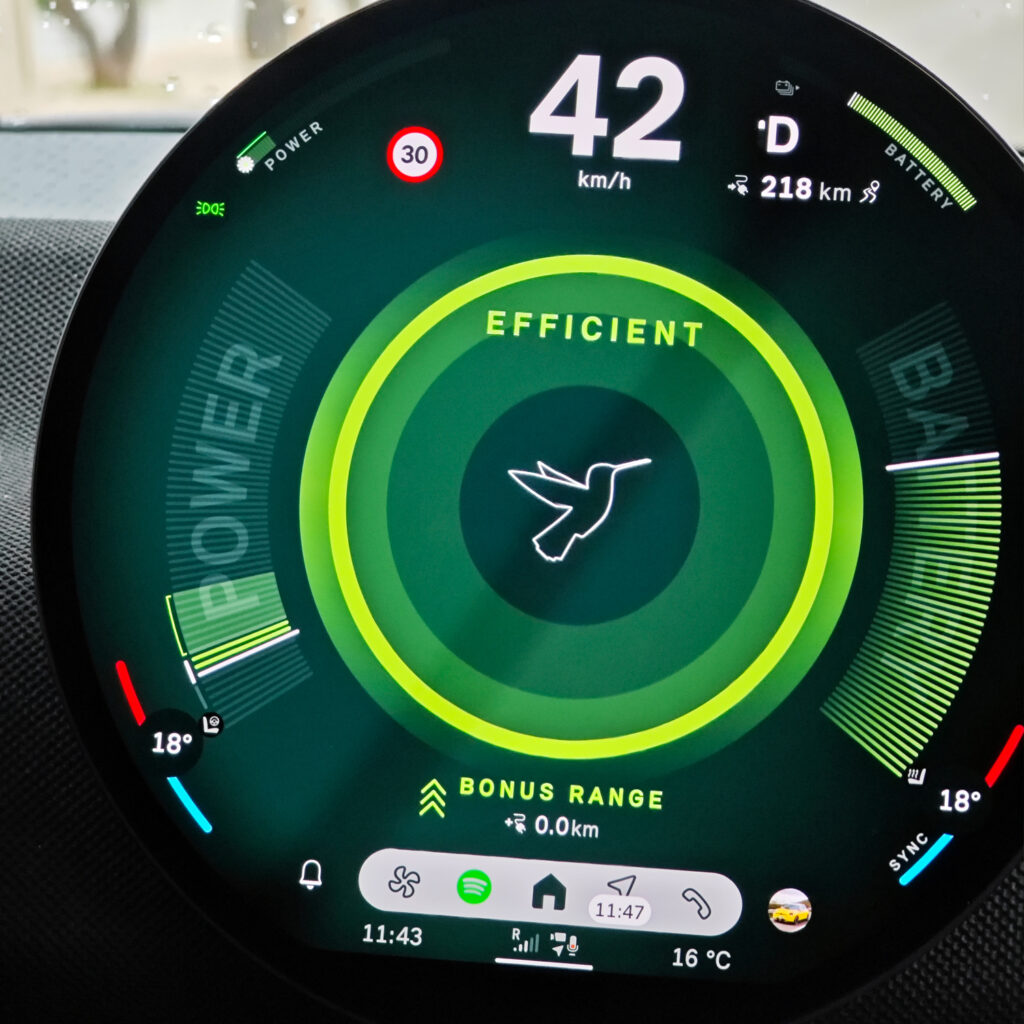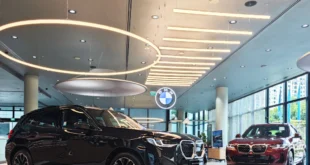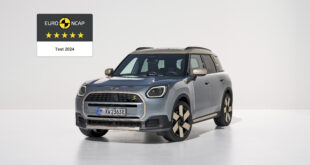Nestled along the stunning Mediterranean coastline, just 35 kilometres southwest of Barcelona and featuring 17 sandy beaches where the clear waters of the Mediterranean meet golden sand, is the picturesque town of Sitges. As I gazed out at the shimmering sea and listened to the soothing sounds of the coastal morning, I found a perfect moment for introspective reflection. In this serene setting, I began to ponder the essence of authenticity and the preservation of character and soul in a rapidly changing automotive world.

In the grand tapestry of life, the soul is often seen as the essence that breathes life into being, the intangible core that defines identity and purpose. It is a profound and multifaceted topic that has been explored across various cultures, religions, and philosophical traditions. Across cultures and throughout history, the soul is often viewed as the immortal core of our being, the seat of consciousness, emotion, and identity. Representing our deepest selves, the soul is believed to be the true essence that yearns for authenticity and fulfilment—challenging us to confront the realities of freedom, choice, and the inherent search for meaning, marked by moments of ethical deliberation and the pursuit of passions that resonate with our inner truth.
Typically associated with living beings, this concept also surprisingly resonates well within the realm of the automotive industry. While machines lack inherent spirituality, we often imbue a select few with meaning and emotion, elevating them beyond mere objects and transforming these amalgamations of metal, glass, plastic, fabric, and carbon into something more profound—becoming extensions of ourselves, reflections of our aspirations, values, and experiences.

These thoughts were sharply brought into focus during a presentation of the latest J01 Mini Cooper. Witnessing the emphasis on preserving the “Spirit” of Mini amidst its electrified evolution, I couldn’t help but wonder: can this new electric Mini truly uphold the cherished qualities that define its legacy, and will it possess the soul that enthusiasts desire?
This is going to be a tough one.

Too busy to read everything? Here are the 5 key takeaways for the J01 Mini Cooper SE
- The fifth-generation J01 Mini will be exclusively available as a 3-door hatchback, built on Mini’s new electric platform, which also supports the upcoming Aceman. Additionally, a new internal combustion engine (ICE) variant will be offered, based on a revised F56-derived platform, now called the F66.
- The J01 Mini Cooper comes in two versions: the Cooper E with 184 horsepower (0-100 km/h in 7.3 seconds) and the Cooper SE with 218 horsepower (0-100 km/h in 6.7 seconds). The Cooper E has a range of 305 km, and the Cooper SE can reach up to 402 km. During our “spirited” driving in Spain, the Cooper SE achieved a realistic 370-380 km range.
- Drawing inspiration from the original Morris Mini, the latest J01 adopts a cleaner and more minimalist design approach for both the exterior and interior. This pared-back style also contributes to an impressive drag coefficient figure of 0.28.
- The J01’s wheelbase has increased slightly to 2525 mm, with minor changes in exterior dimensions compared to its predecessor. The width is up by 29 mm, height by 28 mm, and length extended by 162 mm, partly due to a protruding license plate holder.
- At the time of writing, prices for the J01 are not yet finalised for our local market but sources point to a price point that will be similar to the last Mini Cooper S Electric. Unfortunately, our sources remain tight-lipped about the possibility of a Singapore-special Category A COE-ed Cooper E.
Weaving the concept of the soul into the context of a car can create a rich emotional tapestry that highlights the deep connections humans often form with their vehicles, involving both tangible qualities and intangible aspects that make a vehicle feel alive, uniquely characterful and emotionally evocative.

The Visual Appeal
Our emotions are often provoked through our senses, varying based on individual experiences and contexts. Certain senses, however, are typically more immediate or impactful in triggering emotional responses. In a new environment, sight is typically the first sense to evoke emotions as we visually assess our surroundings. With the new Mini, things are off to a great start as its design language immediately sets it apart from its predecessors.




Simply referred to as Charismatic Simplicity, this purer, more minimalistic approach to the exterior boldly eliminates several familiar design elements in favour of a fresh new aesthetic. While retaining MINI’s hallmark proportions, it also, more than ever, references the original Morris Mini’s pared-back design.

Key design elements, such as the black plastic wheel arch cladding, the vent-like flourish behind the front wheels, the chrome brightwork, and the Cooper S’s hood scoop, have been stripped away. In their absence, clean contoured surfaces play with light and shadow, infusing the design with depth and sophistication that in our car’s Sunny Side Yellow hue, truly shines in the metal.


The fresh take on the Mini aesthetic is evident as we look at the rear end of the Cooper, where a new tail-light design provides three customisable graphical options. As an option, the daytime running light elements at the front can also be customised to create three adjustable light signatures as well.
Four distinct trims will also be available for added distinction, each highlighting unique aspects of the Mini’s new design. “Essential” focuses on simplicity, with a minimalist appearance and functional accents like the logo in Vibrant Silver, complemented by modern paint finishes such as Sunny Side Yellow. While “Classic” enhances interior details, “Favoured” brings with it more expressive exterior features, including an optional Spray-Tech design for the Multitone Roof and a front grille in Vibrant Silver. For those seeking a sportier look, there is a John Cooper Works Trim with a distinctive front and rear design, high-gloss black accents, a contrasting Chili Red roof, and JCW-specific bonnet stripes in red or black.


Mini-malist Inside Out
While design preferences may vary, this fresh new visual approach makes the J01 appear even more modern than its petrol-powered sibling, the F66. Inside, the original Morris Mini’s design inspirations continue to shine, with a stunning new central OLED display taking centre stage. Circular in form and beautifully vibrant in function, this new display is the result of a groundbreaking collaboration between Samsung and Mini. Marking the automotive industry’s first implementation of a large round OLED display. To further accentuate the interior atmosphere, optional projectors behind this gorgeous screen illuminate the curved uncluttered textile dashboard with matching colour schemes and patterns.

Navigating this new circular display requires some basic familiarisation, but the ground-up redesign of MINI Operating System 9 works in Mini’s favour, providing a layout that looks as fresh as the car itself. While there are still some control functions and flows that could be further streamlined—such as allowing for a swipe on the temperature control without needing to tap in—the overall experience is positively pleasant. And when Spike enthusiastically pops out, it’s even joyful! Why Mini didn’t name him Cooper remains a mystery to us.


While the display has been moved closer to the driver on our left-hand-drive test car, it remains to be seen if they will do the same for right-hand drive markets.

Key controls have been repositioned under the display, featuring actual buttons and toggle switches for power, drive selection, parking brake, experience modes, volume control, and other essential functions. This design approach that retains physical tactility is highly commendable, especially considering other manufacturers’ push towards removing switches and buttons in favour of on-screen toggles. Taking care of the most important readouts for driving is also an optional head-up display that ensures all relevant content appears in the driver’s field of vision.
Sound of Big Love
Beyond sight, sound is a powerful trigger for emotions, an aspect often missing in many modern EVs. Music, voices, and environmental noises can swiftly shape our mood and provide a channel of communication between driver and machine, offering immediate feedback to each input and evoking feelings from happiness to melancholy, excitement to relaxation, and even moments of joy, anticipation, and satisfaction.



Mini’s sound engineers understand this well. From the joyful jingles when toggling through driving modes to the intense synthesised engine notes with each deep stab of the throttle and the delightful Jetsons-like burbles on the overrun, Mini has crafted unique soundscapes for each experience mode. These sounds elevate every drive, adding depth, youthfulness, and engagement to surprise, delight, and utterly excite. Unlike my driving buddy who preferred to go au natural with everything turned off. I loved the sounds.

The Go-Kart Revisited
Speaking of driving modes, the new Mini, much like the latest BMWs, offers several options: Core, Green, Vivid, Timeless, Balance, Personal, Trail, and of course, Go-kart! Each mode has its unique lighting, soundscape, and atmospheric visuals.

For those keen to explore the dynamic capabilities of the new electric Cooper, Go-kart mode is a clear choice (Woo-hoo!). However, one of the most intriguing modes for me is Timeless. This mode brings back classic analogue dials and features a soundscape cheekily inspired by and built upon samples from the original Morris Mini itself.


Ahead of us stretched a diverse array of Spanish tarmac, inviting us to explore everything from long, wide highway stretches to narrow, winding forest roads and stunning mountain passes. Each route promised a unique adventure for our charged-up Mini, so it was time to hit the road.
Initial impressions of the new Mini are generally positive, showcasing a much-improved ride over previous generations. While still retaining a sporty setup, the new model now handles minor bumps significantly better and features dampers that effectively absorb road imperfections. This eliminates what many feel was an overly harsh ride on its predecessors, resulting in a more comfortable and enjoyable driving experience, undoubtedly aided by its longer wheelbase that also enhances rear seat practicality for everyday use even with my almost 1.8 metre frame.

However, with the rear seats positioned almost directly above the rear axles, the ride can be slightly bumpier for passengers in the back, though not to a dizzying extent.

With its neutral poise and sharp, direct steering, our Cooper SE handled the first day’s sketchy, narrow roads effortlessly, managing its 1605 kilos (165kg more than the F56) with ease. However, it does lose a hint of its agility in exchange for improved stability and road manners due to the increased wheelbase. By all measurable accounts, the new Mini drives and performs as a Mini should: quick to manoeuvre, sharp to steer, and cheekily responsive to inputs. Yet, even after a day of driving, I felt conflicted. I love how this new Mini looks, how it sounds, and the marque’s storied legacy. But at the end of the day, I couldn’t quite connect with it. I needed to dig deeper.


And deeper I dug, because on our second day into beautiful mountain passes, the J01 came alive with a flick of a toggle into Go-Kart mode. Suddenly, everything clicked (toggled?) into place. With each turn of the wheel, the car seemingly starts to shrink between my hands, confidently encouraging me to explore even further.

With 218 horsepower and 330Nm of torque, acceleration is swift (6.7 seconds), though not blistering. Opting for more horsepower, like many other EVs, would have significantly affected both weight and balance. While 218 horsepower might not sound like much, it does offer a wider range of throttle play and modulation over a longer period, resulting in a more enjoyable and engaging drive with more depth than merely repeating traffic light sprints.

As I navigated the beautiful winding switchbacks of Sitges with Taylor Swift’s Suburban Legends playing in the background, the little Mini seemed to cheekily whisper, “Just a little bit more, a little bit faster,” tempting me to test both its limits and my own as my right foot pressed further into the throttle. Even as the front wheels chirped, the Mini cheerfully buzzed like a spirited electric yellow bee, holding its own, quickly regaining composure with a slight lift, and rotating on command ready to take on the next corner.

As we parked up to admire a castle, it gave me time to unwind and reflect on my drive. The Mini wasn’t without areas that could be improved upon of course. While the steering was direct and sharp, it lacked the communicative feel I craved when loading into corners. And though engaging the drivetrain into B-mode heightened regenerative braking, I couldn’t help but yearn for a left paddle behind the steering wheel to activate this feature, similar to dropping a cog (or two) for engine braking.
Lounging in the passenger seat for the return leg of our mini escapade (pun intended), after swapping drivers, I couldn’t shake off a twinge of envy and betrayal each time we dived into a corner. As my friend took the wheel, I noticed the same spirited handling and responsive performance, but it felt different being a mere spectator. The Mini, which had been my lively partner through those exhilarating switchbacks, now seemed to be enjoying its dance with someone else. She’s a playful one this Mini, so magnetic it was almost obnoxious.

A Soulful Spark
Reflecting on my initial scepticism, I realised that my doubts mirrored my initial question: does this new electric Mini possess the qualities that define a car with “soul”? Amidst the shimmering sea, golden sands and beautiful afternoon sun of Sitges, I found the perfect backdrop for my conclusion.\
Initially, I struggled to connect with the car, fearing that its electric evolution might strip away the cherished qualities that define its legacy. But as I delved deeper into the driving experience, the new Mini gradually revealed its character. The tangible qualities—the design, the sounds, the driving modes—all began to resonate with the intangible aspects of the driving experience. Each turn, each acceleration, and each joyful jingle from the sound system brought the car to life in a way that was sometimes both unexpected and deeply satisfying.
As my journey with the new Mini drew to a close, I realized that both the moments of disappointment and the bursts of joy during the discovery phase added depth to the experience, much like the parallels of discovering our own souls. The initial disconnect I felt with the car mirrored the uncertainties we often face in our own self-discovery. However, as I delved deeper into its character, I found a growing appreciation for its unique qualities. This journey, with its highs and lows, ultimately enriched my connection with the Mini, revealing that the soul of a car, like our own, is uncovered through exploration, patience, and an openness to both its imperfections and its brilliance.
This new Mini? It’s a soulful spark.
 BMW.SG | BMW Singapore Owners Community The Ultimate BMW Community – Established Since 2001
BMW.SG | BMW Singapore Owners Community The Ultimate BMW Community – Established Since 2001













